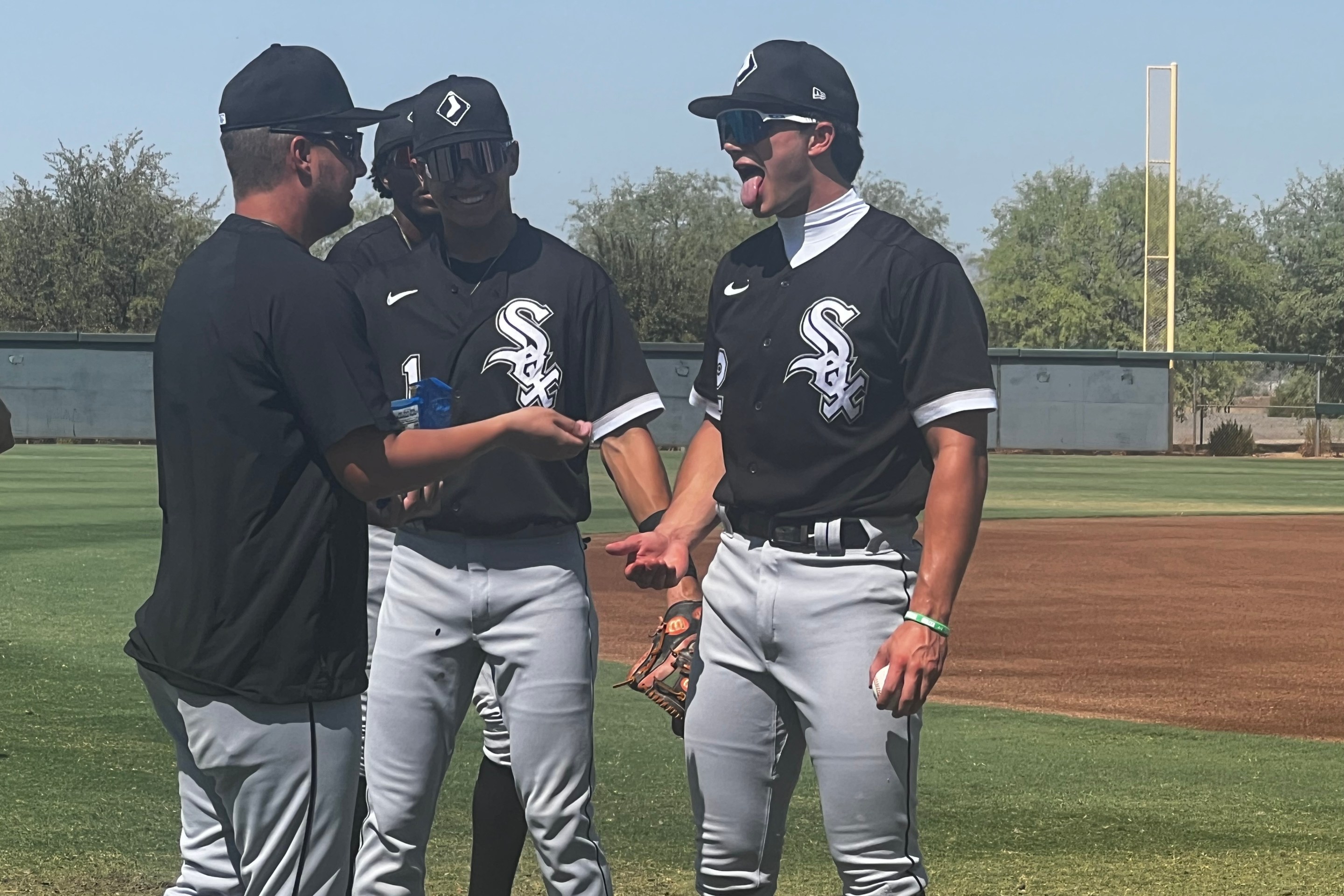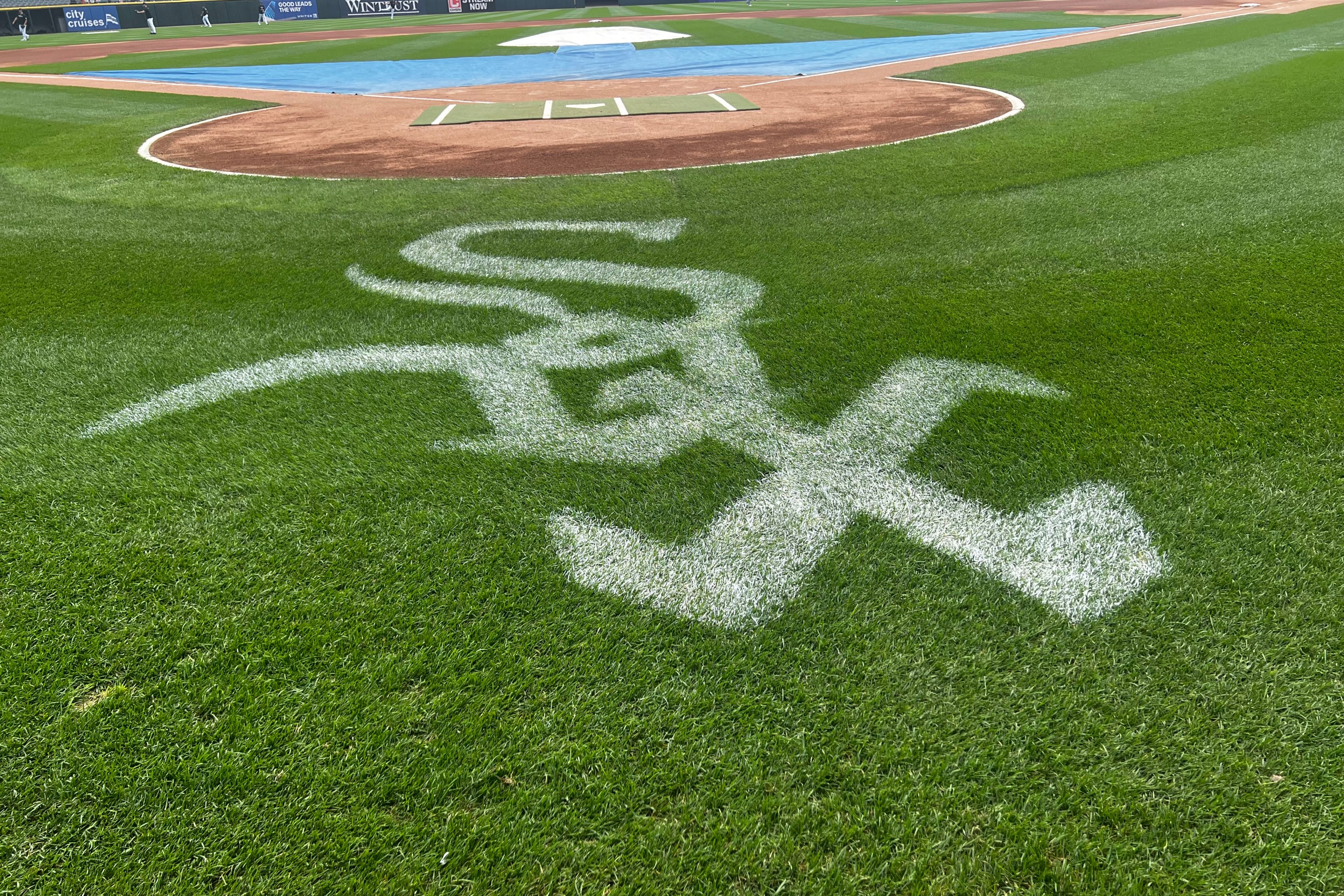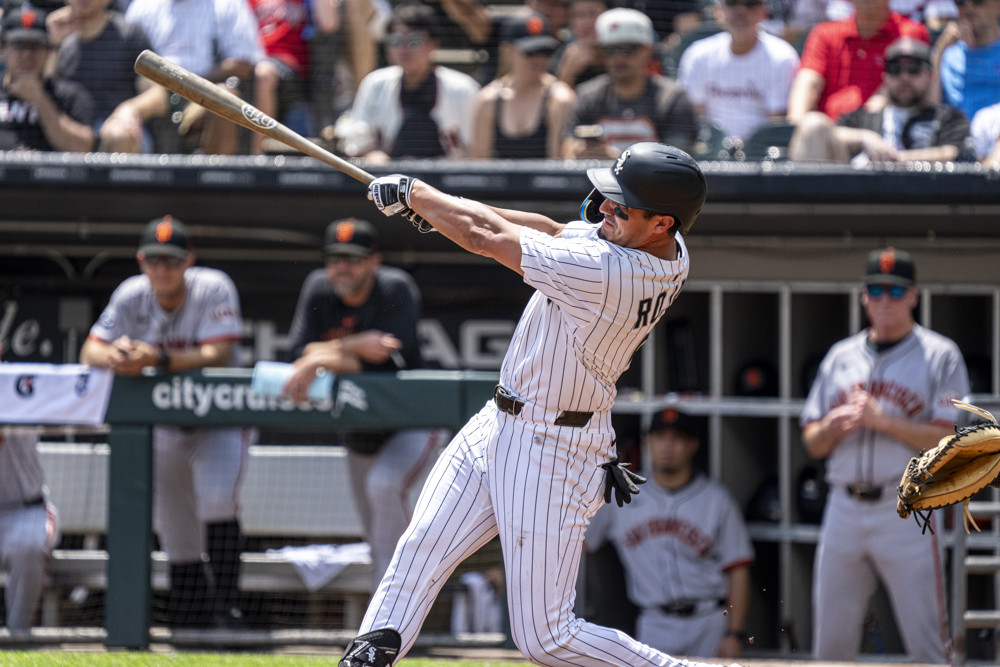The White Sox didn't announce Tim Anderson's status with other roster moves on Friday, but delaying their decision to decline his $14 million option didn't dull the effect.
Anderson is no longer a member of the White Sox, with the team sending out a farewell message and a thanks-for-the-memories montage:
It's a stunning development when you consider everything Anderson represented, but it's less stunning if you feel confident using the past tense, or no longer like the aspects of the White Sox that Anderson represents.
Looking at it another way, it's a testament to Anderson's previous excellence that it dumbfounds at all, because it's quite a different conversation if you disregard the name while considering the following exercise:
Would you rather pay $14 million to somebody who:
- Hit .245/.286/.296 in 2023 (and .246/.286/.295 going back to June 2022)?
- Was the least productive qualified hitter in baseball in 2023?
- Only hit one homer in 524 plate appearances in 2023?
- Was the least valuable regular according to bWAR?
- Hadn't played more than 123 games in any of the last five seasons due to an assortment of injuries, most of them lower-body?
- Is now in his 30s?
- Might not be a shortstop anymore?
Or would you rather buy him out for $1 million and see if you can do any better with the savings? When you approach it that way, the answer's obvious.
You shouldn't only approach it that way, because more of Anderson's track record merits consideration. It's weird that his production collapsed like it has, and a lot of teams could be interested in Anderson at a lower price or different position because he'd been so much better not all that long ago.
Hell, one of those teams could be the White Sox. There's a chance that Anderson's time on the South Side isn't over, because the White Sox don't have immediate heirs apparent at either middle-infield position. It wouldn't shock if Anderson returned on a one-year, $5 million deal to play second base. They'd certainly have all the playing time for him to use both sides of a pillow contract.
Whether Tim Anderson's White Sox career continues after a brief interruption, though, this decision marks the end of the Tim Anderson Era, and it's probably the more responsible path forward.
Under Rick Hahn and Kenny Williams, the White Sox got too attached to players who just weren't able to meet expectations. They justified staying the course by blaming injuries and pointing to the back of the baseball card (but only the good parts). What did they have to show for it? A 101-loss team at what was projected to be the peak of the contention arc.
It'd be weird to fire Hahn and Williams, then ask Chris Getz to follow the same path that buried them. Behavioral scientists would have a field day with the Sox if they exercised Anderson's option because it would invoke so many cognitive biases. Off the top of my head:
- Optimism bias: This time it'll work out!
- Effort justification: He's the one position player the White Sox actually developed!
- Sunk-cost fallacy: After all the time and money, they may as well see it all the way through!
- Endowment effect: He's worth more to the White Sox because he's on the White Sox.
- Anchoring bias: He's worth $14 million because that's what was once fair value.
Only a couple of these were present when the Sox exercised Craig Kimbrel's option with the intent to trade him, and they ended up getting stuck with him for the entire 2021-22 offseason.
I can envision the range of possible outcomes for Anderson's 2024 season effectively enough, and if I try to pretend I'm in next October assessing each kind of performance, I suppose I'd be least surprised if he continued to be injured and ineffective. And while that might not cost the White Sox anything in terms of their postseason hopes, there is an opportunity cost by devoting the resources to a player everybody knows the Sox don't intend to keep, but might find themselves stuck with.
It doesn't look like any sort of toll when the incumbent middle infield is now Lenyn Sosa and Zach Remillard, but you have to leave some room for the unknowns. If the White Sox are going to turn this around, then they have to spin their biggest problem (lack of solutions) into a potential benefit (generous audition opportunities). It's easy to imagine what we've already seen, which is a lot of Sosa looking like a AAAA infielder. It's harder to imagine Getz acquiring somebody else's blocked/stalled prospect and getting a decent contribution from him, but that's now a more possible outcome than it was before.
That just requires Getz to do the work, and that's why I say the White Sox probably chose responsibly.
Why the lingering doubt? Getz doesn't have a track record as GM, and he was part of the problem as director of player development. The White Sox have been terrible at keeping players healthy, and Pedro Grifol bypassed every opportunity to mitigate the damage of Anderson's underperformance because he was scared to impose consequences upon players with guaranteed contracts. Two things can be true: Anderson was terrible, and the White Sox provided the worst possible environment for him. The possibility of a change-of-scenery boost is real, especially if there are fewer off-the-field complications.
We'll have to wait for more information to roll in over the course of the offseason to dial in a more confident response. Whatever contract Anderson receives will help better determine what his trade value might've been, and in the meantime, let's see if Getz is any more proactive than Hahn in landing potential outside solutions. The good news is that this isn't a zero-sum event. Maybe Anderson rebounds elsewhere and the White Sox use the deck-clearing to their advantage, whether it's by freeing up some payroll, opening the playing time and/or shaking up the hierarchy.
I certainly wish Anderson well, whether in Chicago or elsewhere, because this isn't the ending his White Sox career deserved. In a more ideal order of operations, Anderson would have one guaranteed year to turn it around while Yoán Moncada's option year arrived because Anderson still has some goodwill remaining. Alas, Getz is tasked with reducing the number of players who are too often injured and unable to answer the question, "What is it you do well?" Anderson's number was called, and now his time is up.






